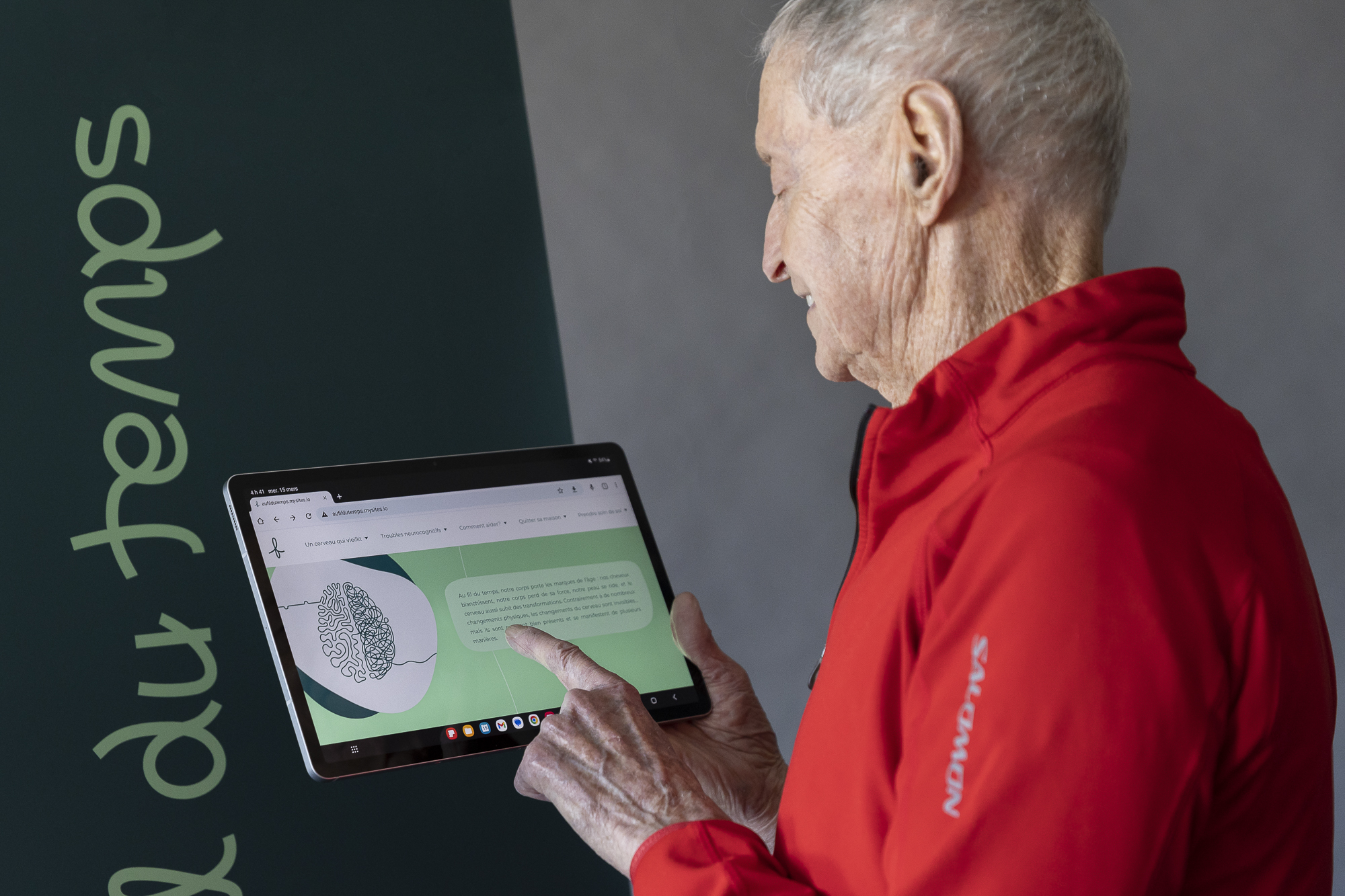Healthy aging, with nonagenarian Jean Bernaquez and neuropsychologist Dr. Isabelle Rouleau
Jean Bernaquez started exercising at age 49 to avoid health problems. Today, this lively senior in his nineties works out every day. He talks to Dr. Christine Grou, a psychologist and president of the Ordre des psychologues du Québec, and Dr. Isabelle Rouleau, a neuropsychologist who specializes in aging.
Our videos are only in French.
Aging, with neuropsychologist Dr. Isabelle Rouleau
What does normal aging look like after age 60, 70, 80, or even 90?
One of the key features of normal aging is how differently people age. We don’t all age the same way. In their twenties or thirties, most people are quite similar, both physically and cognitively. But as we age, individual differences become more pronounced. Generally, we experience increasing stiffness and a reduced ability to find a variety of solutions to a problem. A range of functions can be affected, including organization, planning and cognitive flexibility.
What characterizes abnormal aging?
People are aware when they start having memory issues. Some forgetfulness is normal, but certain types can be signs of something more serious. Often, age-related forgetfulness is linked to how much attention people are paying. However, if someone makes a real effort to remember something but still can’t, that’s a red flag. In normal aging, we may simply process information a little more slowly or less thoroughly. In clinical settings, professionals help differentiate between normal and abnormal forgetfulness and provide psychoeducation, especially for those who are very anxious about their memory.
What are the best ways to age well?
There are some unchangeable genetic factors, but many aspects of healthy aging are within our control. Jean’s story is a great example: a decision he made at 49 likely changed the course of his life. Some might feel they could never do what he does — but everyone has to start somewhere. Every small step is a victory. What matters most is setting realistic goals. Physical fitness can help people enjoy life more, stay optimistic, and feel less pain.
It goes without saying that medical conditions such as high blood pressure and diabetes must be treated, but cognitive stimulation and social involvement are vital too. Talking about books, articles or TV shows with friends and family helps organize thoughts, a process that is essential for healthy aging. Social isolation is one of the major risk factors for cognitive decline in older adults. Stimulating activities include puzzles, crosswords, reading and cooking. The activity itself matters less than whether it’s both enjoyable and mentally engaging.
The best advice? Stay active both mentally and physically. Embrace challenges and keep learning new things. Don’t be afraid to pursue your dreams, even if you don’t fully achieve them. For example, you may not become fluent in Italian, but starting to learn the language can still be incredibly rewarding.
Jean's secrets to healthy aging
Jean Bernaquez didn’t begin exercising until he was 50, but that didn’t stop him from running several marathons, starting with his first in 1982. Now 90, he maintains a regular routine that includes brisk walking, strength training, and stretching multiple times a week. He also takes great care with his diet and prepares all his own meals.
Does he see any upsides to aging? “Life is beautiful! When you can do what you want at a certain age, it’s easier — because you’ve been through a lot,” says the Montreal native, who also highlights the importance of staying positive.
We couldn’t agree more with neuropsychologist Dr. Isabelle Rouleau: With a guest like Mr. Bernaquez, it’s hard not to feel inspired to go for a run right away!

Video capsules
(Our videos are only in French)